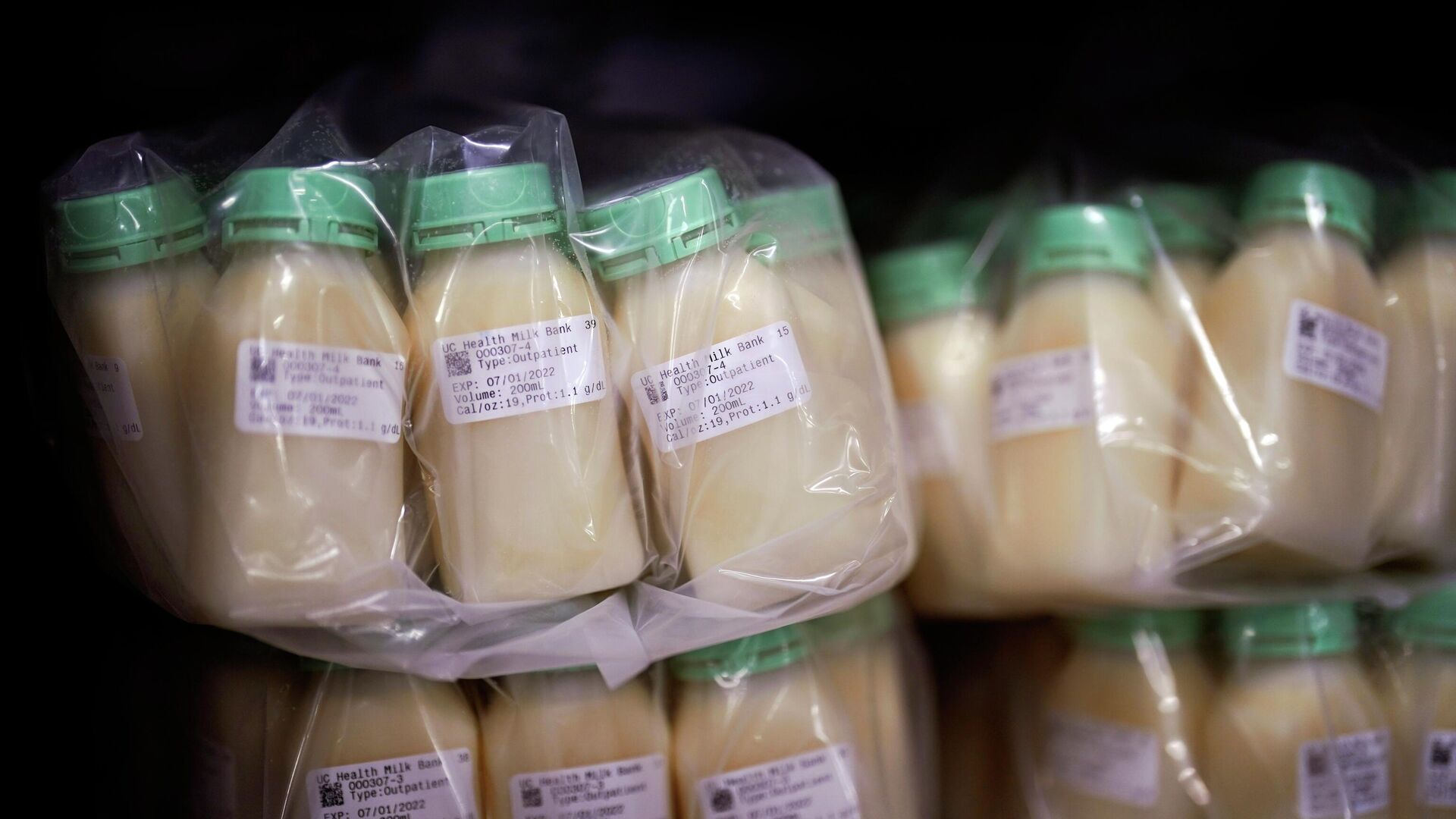US Milk Banks See Uptick in Donations as Biden Admin Dodges Accountability
04:19 GMT 14.05.2022 (Updated: 12:56 GMT 14.04.2023)

© AP Photo / Gregory Bull
Subscribe
Infant formula has become a hot and rare commodity as pharmacies and supermarkets across the US are reporting critically low inventories that are being gouged by stockpilers and panic buyers. The shortage has become a compounded issue, amid a combination of supply chain disruptions, recalls, and a factory shutdown.
While there is no shortage of negatives to the US’ baby formula shortage, at least one redeeming quality of the ongoing saga appears to be the increase in traffic to milk banks accepting breast milk from mothers. Companies generally screen, test, and pasteurize the milk before it can be fed to infants, including premature babies.
“It’s interesting the first sort of response that we got was from potential donors — so people responding to the formula shortage with sort of an amazing, compassionate response of how can I be part of the solution?” Deborah Youngblood, executive director of Mothers’ Milk Bank Northeast in Massachusetts, told the Associated Press.
According to Youngblood, around 30 individuals inquired about the facility’s services because they were unable to find their child’s usual formula on local shelves.
The same can be said in Missouri, where The Milk Bank is collecting donations via drop-off locations like Amer Sky Salon.
“We have been receiving so many calls that we're actually in a pause right now,” Jamie Lueders, owner of the Shrewsbury salon, told KSDK this week. “Hopefully we can make better strides in really providing moms with the resources that they need.”
Health officials have highlighted that parents who do not exclusively feed their children breast milk should explore their options on store shelves, as those available for purchase have been regulated by the US Food and Drug Administration (FDA), and–in most cases–are safe for infants.
However, experts advise against attempting to recreate the specific mix of salts, sugars, and minerals found in formulas.
“If your child is over six months of age, it’s ok to start them on water, complimentary foods like pureed foods, and once your child is able to chew and swallow little pieces of foods, making sure that they are soft and about the size of the tip of your finger,” Mercy Hospital’s Dr. Maya Moore told KDSK.
From supermarkets to social media, the formula shortage has panicked parents stockpiling the scarce good, but it also has Hollywood elders–like 76-year-old Bette Midler–acting out.
The actress was taken to class by men and women on Friday after suggesting that women who feed their children formula should consider giving the baby breast milk.
“I love you Bette, but this is not okay. I fought to breastfeed my son, he kept losing weight, despite my best efforts, including lactation experts,” tweeted user @Mom2boy_pup_cat in response to Midler. “It was emotional and 💔 I felt like a failure and at 3 months switched to formula, because of the stress it put on me and my son.”
Three percent of American companies control more than 90% of the formula market, according to MSNBC host Stephanie Ruhle.
The shortage, which has been dated back to 2020, has worsened in recent months due to a safety recall by formula maker Abbott Laboratories, which also shut down a factory earlier this year.
On Friday, the White House touted that Abbott had committed to offering rebates on formula. Aside from expanding WIC, the Biden administration has offered little assistance amid the shortage.
